Election anxiety and uncertainty over the outcome of the 2024 presidential race
Feelings of fear and stress over the outcome of the 2024 presidential election are affecting individual health and interpersonal relationships around the United States, fueled by the nation's wide political divides and multiple close votes.
By Steven Potter | Here & Now
November 4, 2024

(Credit: Photo illustration via PBS Wisconsin)
Sweaty palms. Feeling weak in the knees. The sensation of heavy arms. An upset stomach and even vomiting.
These are just some physical reactions to worry, nervousness and stress – feelings that fit under the umbrella of anxiety.
Mental health care providers have been tracking an increase in stress and anxiety in Americans over recent years, but psychologists say in 2024, there’s one thing that’s significantly contributing to a spike in these issues — politics, specifically the presidential election.
“What we’re seeing from our most recent survey is that election stress is very real and very bipartisan,” said Vaile Wright, a licensed psychologist with the American Psychological Association. “When you look at the numbers, a majority of both Republicans and Democrats are expressing stress around the future of the nation.”
The close race between Vice President Kamala Harris and former President Donald Trump is feeding those feelings.
“I think the stress is anchored in uncertainty. We just don’t know what’s going to happen,” Wright said. “Even once Election Day comes and goes, I think there’s still this sense of ‘Will we really know what’s going to happen?’ And that sense of uncertainty is somewhat rooted in truth. We did see really unprecedented things four years ago. And there is reason to potentially be concerned, especially when you hear the rhetoric.”
According to the American Psychological Association’s 2024 Stress in America survey released in late October, 77% of adults said the future of the United States was a significant source of stress in their lives.
More specifically, the survey found that in 2016, the presidential election caused significant stress for 52% of adults – in 2024, that number jumped to 69%.
“So, it seems to be getting worse with each four years with this year being the highest level of individuals reporting stress around the U.S. presidential election,” explained Wright.
Drilling down further into data, the survey also found that 72% said they are worried the election results could lead to violence, and about 56% said they believed the 2024 presidential election could be the end of democracy in the U.S.
Wright noted that the increase in election anxiety is largely due to the nearly inescapable political advertising and campaign rhetoric these days.
“If you go to whatever social media page to see what your friends are doing, it’s almost impossible not to be bombarded by some political trigger – that really heightens our anxiety,” she said. “And that’s just social media. Whether you’re online or watching TV, there’s also the political ads. Or every time I take a walk in my neighborhood, one house is supporting one candidate and then the next house has the other candidate. It’s just hard to get away from it.”
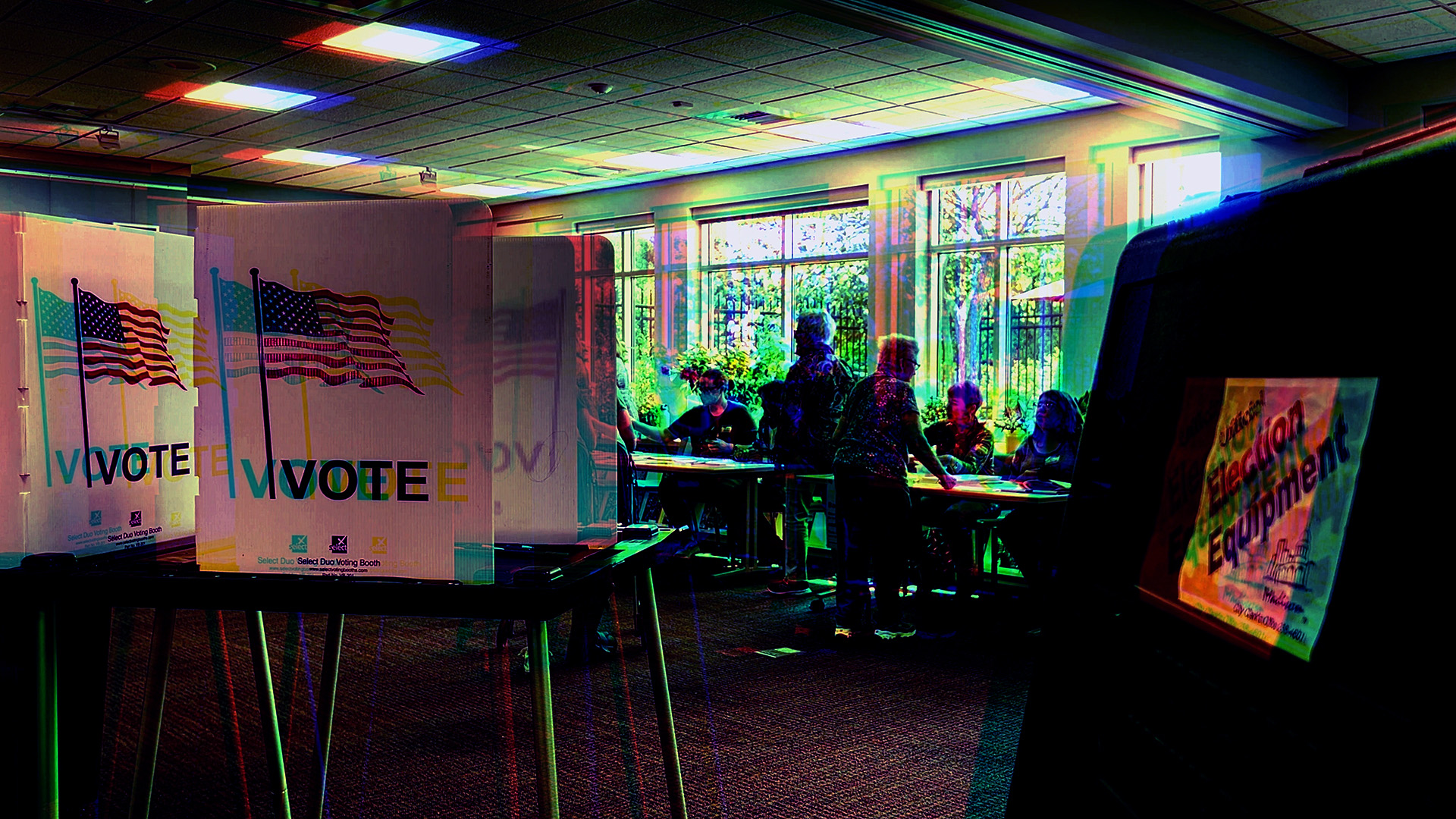
(Credit: Photo illustration via PBS Wisconsin)
Wright compared the stress that the current political landscape creates to that of natural disasters. “With a national election, there are widespread U.S consequences, but there are global consequences as well,” she said.
The survey also found that 54% of people have little or no trust in the government.
“That’s a significant number of people that are ‘We cannot trust those in charge,’ and if you can’t trust those in charge then I think people really do feel lost,” Wright explained. “They feel like it’s hopeless and there’s just nothing that we can do.”
Researching the depth of political anxieties
Election anxiety has also drawn the attention of academics and political scientists.
Aaron Weinschenk, a political science professor at the University of Wisconsin-Green Bay, has been researching how politics can affect an individual’s stress and increase anxiety levels since the 2020 election.
Along with other researchers, Weinschenk has set out to learn how anxious elections make people, and if factors like who they voted for, their racial background and level of political engagement affects their stress.
Their first survey report, titled “On pins and needles: anxiety, politics and the 2020 U.S. Presidential election,” found that “those who are highly politically engaged, interested in politics, and who score highly on negative emotionality felt more political anxiety than their counterparts after the election.” So, essentially, the more people know about politics, the more election-related anxiety they have about them, even after an election is over.
In a follow-up survey, they asked the question “Is political anxiety different than general anxiety?,” and found the answer was yes.
“It turns out that you might not be that anxious in general, but you might be anxious about politics,” Weinschenk explained. “So those two feelings are not super-highly correlated.”
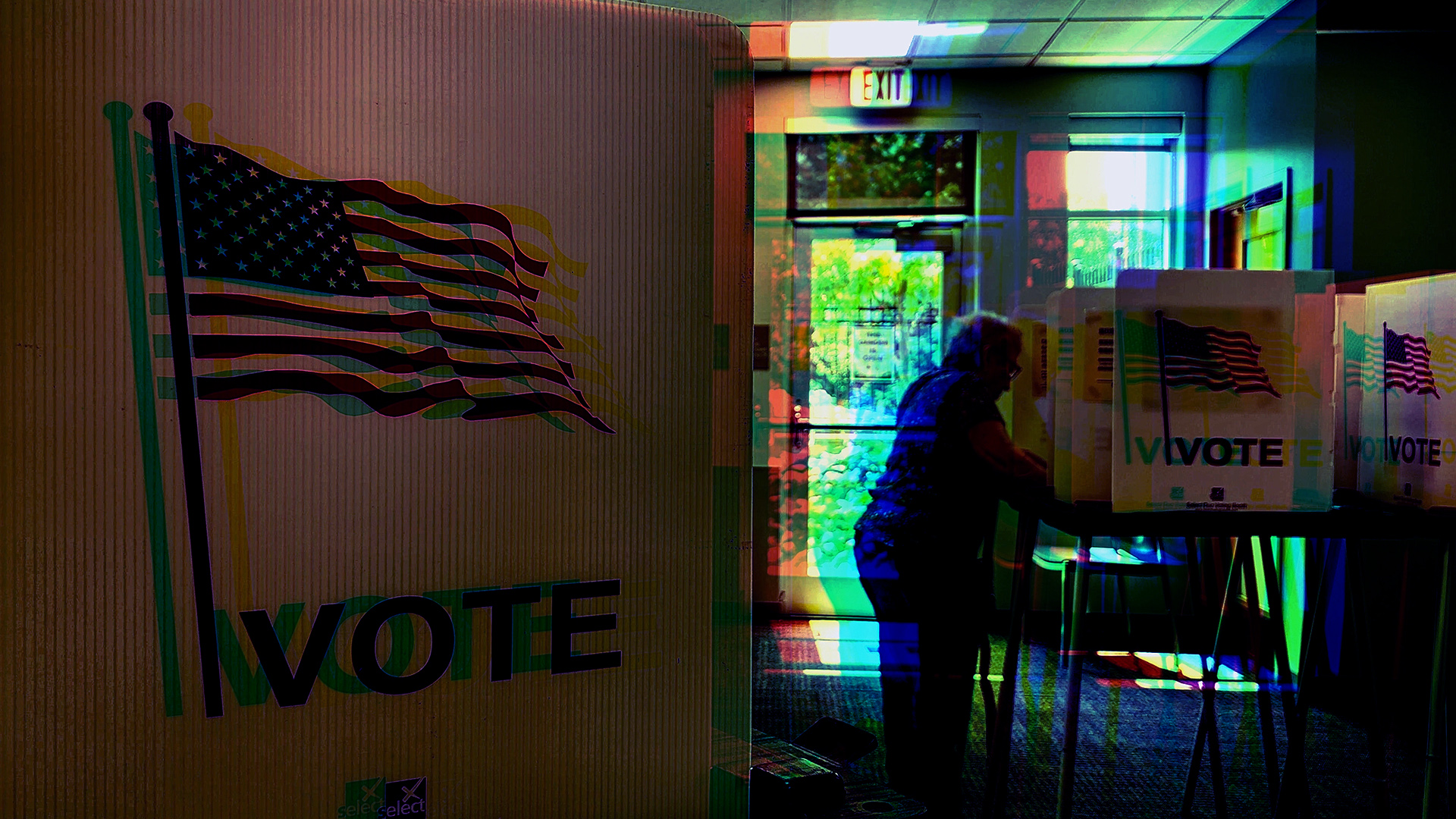
(Credit: Photo illustration via PBS Wisconsin)
Weinschenk is also very interested in studying what people can do to manage their political stress and election anxiety.
“If you experience this over long periods of time, it can lead to things like loss of sleep or not talking to people who you ordinarily talk to because you don’t want to talk about politics and have conflicts with them,” he said. “So, what do you do if you’re anxious and you try to not be around the thing that makes you anxious? We want people to take breaks when they’re feeling anxious, of course, but we don’t want them to abandon politics completely.”
Weinschenk added that negative reactions to politics might be worse for Wisconsinites because of the “permanent knowledge that we’re a battleground state and it’s competitive politics all the time here.”
Although they haven’t yet studied how the increase in misinformation and lies in politics affect anxiety, Weinschenk is sure it doesn’t make anyone feel better.
“People are really anxious that [a politician or candidate] could really say anything now and it gets disseminated so widely,” he said. “My guess is that that feature of politics is something that is very anxiety inducing among a lot of people.”
Politics and relationships
There are also serious concerns about how politics and elections negatively affect relationships people have with each other. According to the American Psychological Association survey, 32% of respondents said the political climate has caused strain among themselves and their family members.
Wright said splintering of relationships can make feelings of anxiety worse.
“I think that that is incredibly unfortunate, because what it does is it continues to isolate us in really important ways and enables us to create this in-group outgroup dynamic,” she said. “We’re no longer really listening to each other, we’re just trying to prove that we’re right. But we need these relationships – we need relationships in our life to buffer stress – it’s like the number one thing that we can do is to connect to others socially. So, the fact that people are reporting so much strain on relationships concerns me as a psychologist.”
Other reactions to political stress and election anxiety that Wright has seen include teeth grinding and muscle tension headaches. “Psychologically, it can look like worried thoughts that often lead to catastrophizing and an inability to stop these circling thought patterns,” she noted.
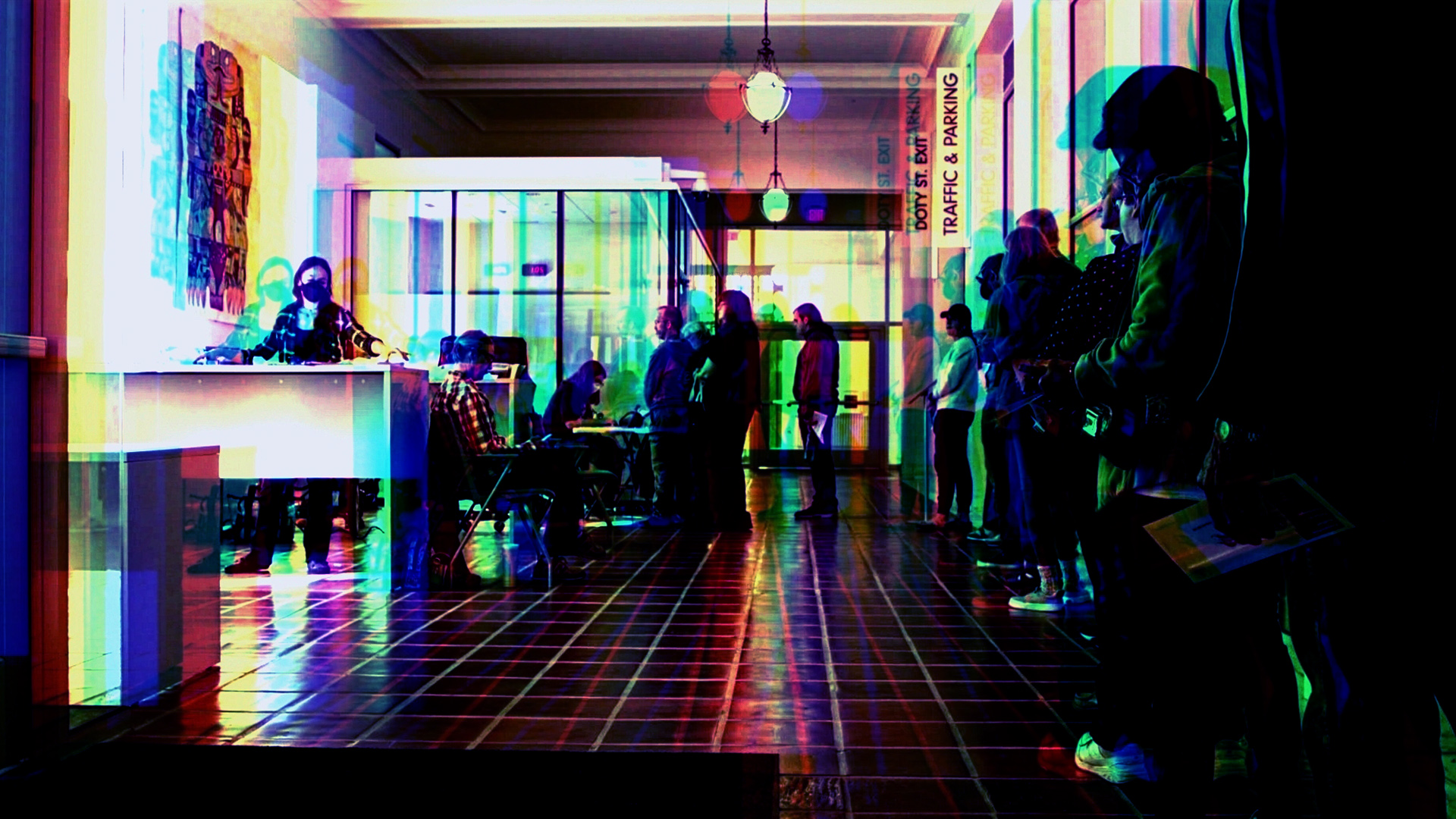
(Credit: Photo illustration via PBS Wisconsin)
So, when should someone seek professional help for election anxiety? Wright said her answer to that question has changed over recent years.
“I used to say it was when you felt like the stress or anxiety was interfering in your daily life in a significant way, like it was preventing you from being successful at work or taking care of your family or taking care of yourself,” she explained. “Now, I say don’t wait that long. See somebody sooner if you can – as soon as you feel like there’s even the potential that talking to somebody else could be helpful. Just go seek out some treatment.”
Wright also pointed to the importance of having conversations about interests other than politics.
“Most people want to feel connected and we can connect on everything that’s not political,” she said. “We don’t have to talk about these stressors in order for those social connections to be critical and helpful.”
 Passport
Passport




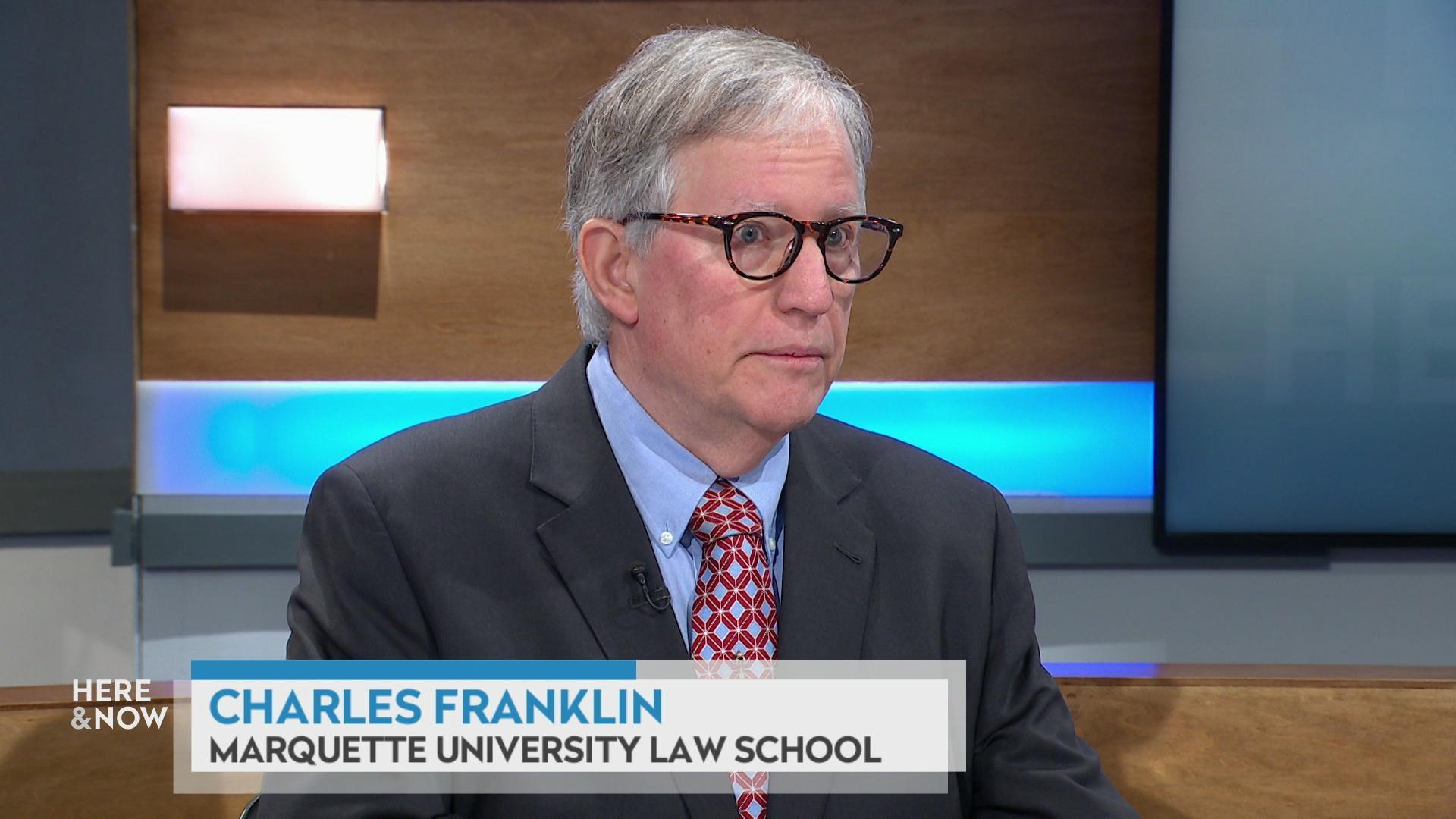

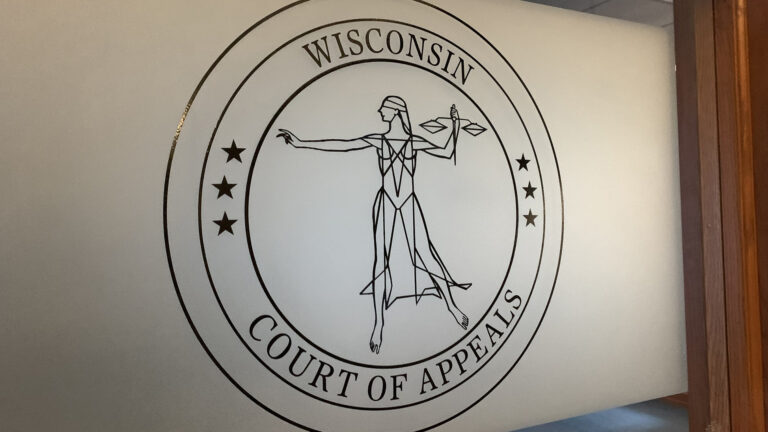
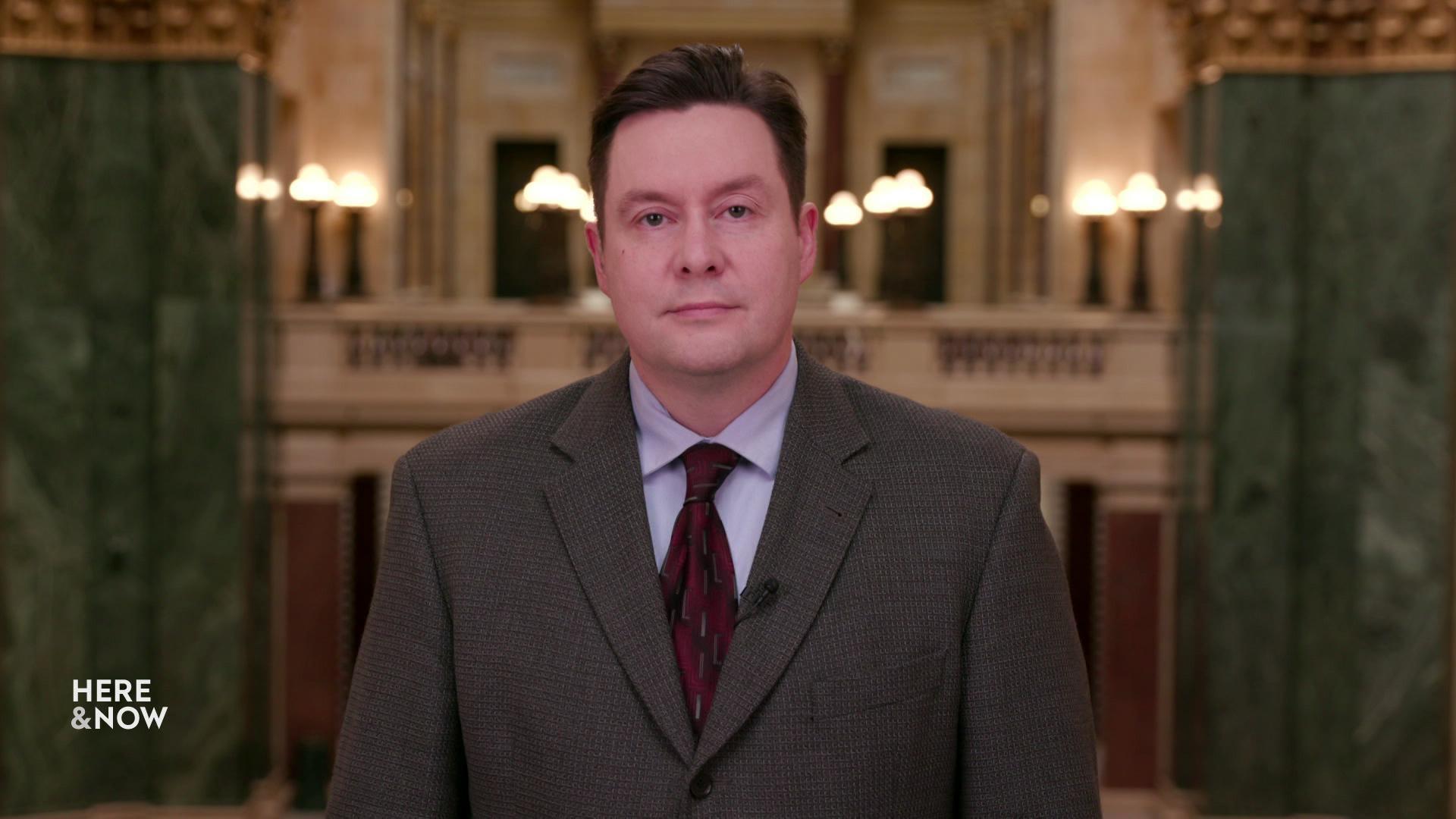
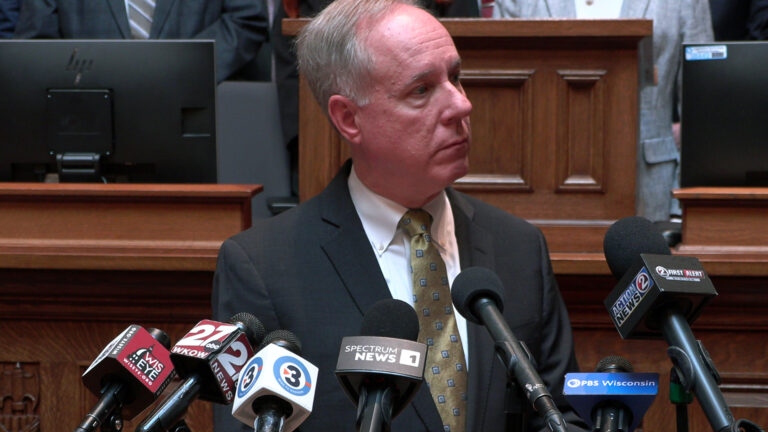


Follow Us